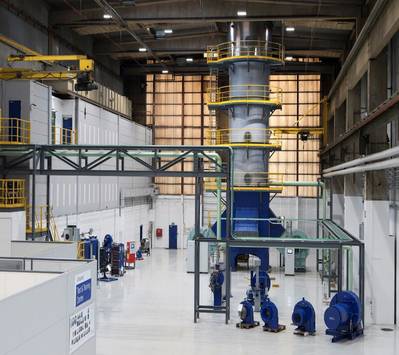Alfa Laval Launches Gas Combustion Unit 2.0
Alfa Laval said it has taken the original simplicity of its Gas Combustion Unit (GCU), used for boil-off combustion on liquefied natural gas (LNG) carriers, and made it even smarter in the new GCU 2.0.
“The Alfa Laval GCU is reliable and easily maintained, in large part because of the simplicity of its design,” said Jeppe Jacobsen, Global Sales Manager. “That principle is unchanged in the GCU 2.0, but we’ve extended the capacity and lifetime by refining certain details.”
Refinements in the GCU 2.0 include an even more optimized flow of combustion and dilution air. The adjustments were determined through extensive combustion testing, which was performed using the full-size GCU at the Alfa Laval Test & Training Center. The result is even steadier combustion at a reasonable temperature, which extends burner lifetime and reduces distortion of the burner plate, Alfa Laval said.
“Alfa Laval is unique in having a full-size GCU in a controlled testing environment,” Jacobsen said. “The GCU has proven its capabilities at sea many times over, but we’re constantly developing it at the Alfa Laval Test & Training Centre. The simplicity and design principles don’t change, but even small adjustments can create large performance gains.”
According to Alfa Laval, the most evident change in the GCU 2.0 is in the service offering around it. All GCU 2.0 deliveries will be connectivity-ready, making it easy to take advantage of Alfa Laval Digital Services for Gas Combustion Units, the manufacturer said.
“The need for maintenance is already limited, but our Digital Services protect daily operation and safety,” Jacobsen said. “Online remote monitoring lets GCU customers secure their readiness to operate, and the access to live and historical data makes troubleshooting easier. With data guiding our support team, service visits can be kept to an absolute minimum.”
“The GCU 2.0 is specifically designed for LNG carriers, but Alfa Laval has solutions that enable LNG’s use on the widest possible range of vessels,” Jacobsen said. “LNG has a key role to play in our move towards a more sustainable future.”













